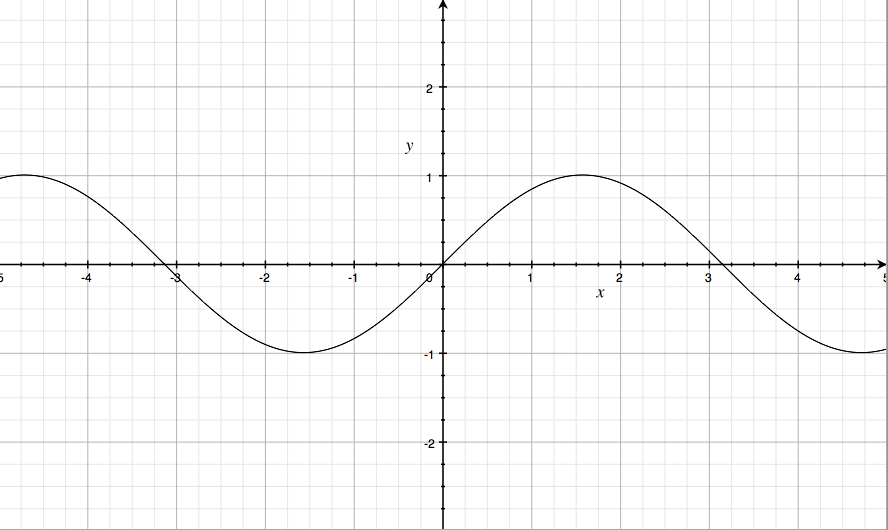(New page: A continuous time signal x(t) is periodic if there exists T such that x(t + T) = x(t) for all t. <br> A discrete time signal x[n] is periodic if there exists some integer N such that x[n +...) |
(→Non-Periodic Signal) |
||
| Line 13: | Line 13: | ||
For x[n] to be periodic, there must be an N such that x[n + N] = x[n]. <br> | For x[n] to be periodic, there must be an N such that x[n + N] = x[n]. <br> | ||
This only holds true if <math>N = 2\pi</math> or some multiple of <math>2\pi</math><br> | This only holds true if <math>N = 2\pi</math> or some multiple of <math>2\pi</math><br> | ||
| − | + | Thus <math>x[n] = e^{jn}</math> is not periodic because <math>2\pi</math> is not an integer. | |
Revision as of 16:26, 4 September 2008
A continuous time signal x(t) is periodic if there exists T such that x(t + T) = x(t) for all t.
A discrete time signal x[n] is periodic if there exists some integer N such that x[n + N] = x[n] for all n.
Periodic Signal
Let x(t) = sin(t), as seen below.

For x to be periodic, there must be a T such that x(t + T) = x(t) for all t.
Since the sine wave repeats itself every π, it is periodic.
Non-Periodic Signal
Let $ x[n] = e^{jn} $.
For x[n] to be periodic, there must be an N such that x[n + N] = x[n].
This only holds true if $ N = 2\pi $ or some multiple of $ 2\pi $
Thus $ x[n] = e^{jn} $ is not periodic because $ 2\pi $ is not an integer.

